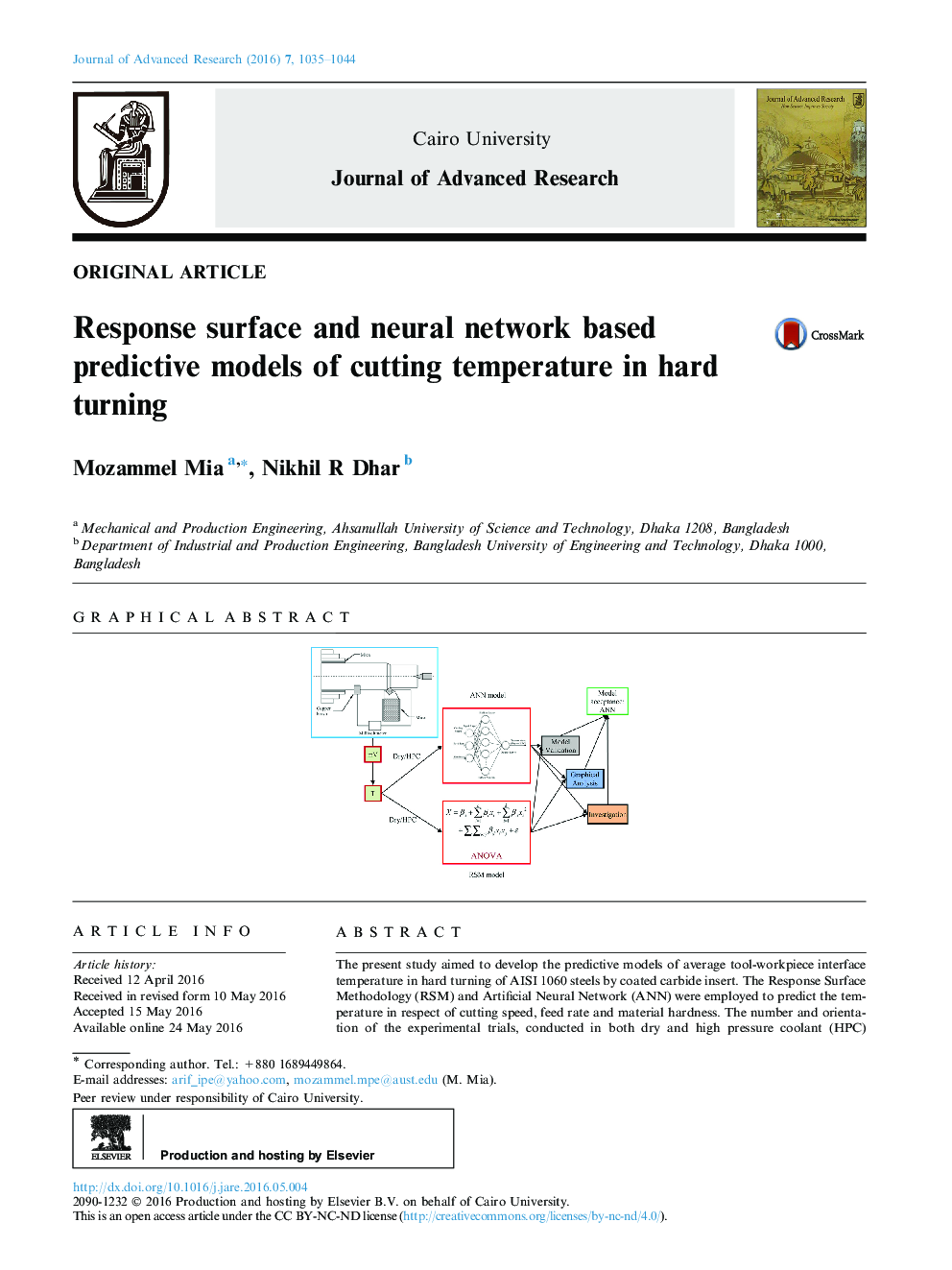| Article ID | Journal | Published Year | Pages | File Type |
|---|---|---|---|---|
| 5022902 | Journal of Advanced Research | 2016 | 10 Pages |
The present study aimed to develop the predictive models of average tool-workpiece interface temperature in hard turning of AISI 1060 steels by coated carbide insert. The Response Surface Methodology (RSM) and Artificial Neural Network (ANN) were employed to predict the temperature in respect of cutting speed, feed rate and material hardness. The number and orientation of the experimental trials, conducted in both dry and high pressure coolant (HPC) environments, were planned using full factorial design. The temperature was measured by using the tool-work thermocouple. In RSM model, two quadratic equations of temperature were derived from experimental data. The analysis of variance (ANOVA) and mean absolute percentage error (MAPE) were performed to suffice the adequacy of the models. In ANN model, 80% data were used to train and 20% data were employed for testing. Like RSM, herein, the error analysis was also conducted. The accuracy of the RSM and ANN model was found to be ⩾99%. The ANN models exhibit an error of â¼5% MAE for testing data. The regression coefficient was found to be greater than 99.9% for both dry and HPC. Both these models are acceptable, although the ANN model demonstrated a higher accuracy. These models, if employed, are expected to provide a better control of cutting temperature in turning of hardened steel.
Graphical abstractDownload full-size image
